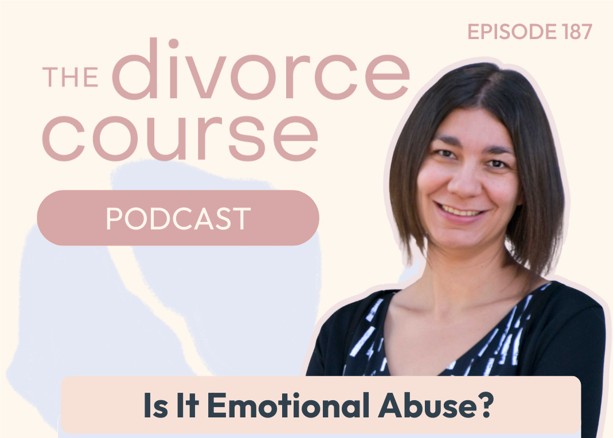
You can live with shame, humiliation, guilt and even fear for years and not realise that you are in an emotionally abusive relationship. Slowly but systematically your confidence is whittled away, your self-esteem is eroded, and your perception of self becomes distorted—and yet you don’t even know it’s happening.
Most people typically think of emotional abuse as one partner yelling, threatening, and belittling the other. But emotional abuse is much more than verbal attacks. It can be defined as any non-physical behaviour that aims to control, intimidate, subjugate, demean, punish, or isolate another. Emotional abuse is very painful and incredibly detrimental to a person’s sense of self. The insults, criticism, and accusations slowly but steadily undermine you until you can no longer trust your judgment or even recognise who you are. Emotional abuse poisons a relationship and infuses it with hostility, contempt, and fear until there is little left of the love that existed in the beginning.
Are You Being Emotionally Abused?

What defines emotional abuse is a persistent pattern of demeaning, overpowering, and hurtful behaviours and attitudes. Over the years in practice, I’ve seen how overwhelming it can be to make sense of the sheer volume and variability of behaviours in these relationships. That is why I developed The 3Ds of Emotional Abuse—a clear, concise, and comprehensive framework designed to help organise and understand the dynamics at play. It brings structure to what often feels like chaos. You can read more about it here.
Alternatively, below is a simple self-test to help you evaluate your relationship. If half or more of the statements apply to your relationship, you are almost certainly experiencing emotional abuse. But if even a few of them are present, this can also indicate emotional abuse.
You find yourself frequently “walking on eggshells”, self-censoring your behaviour or monitoring your partner’s mood before bringing up a subject.
- You feel as if your partner treats you like a child and you must “get permission” before going somewhere, spending money or making even the smallest decision.
- Your partner often uses a patronising tone and treats you as if you know nothing.
- Your partner routinely ridicules or disregards your opinions, suggestions, and feelings.
- Your partner constantly belittles your accomplishments or your plans for the future.
- You find yourself “walking on eggshells”, monitoring your behaviour and/or watching for your partner’s bad moods before bringing up a subject.
- You have stopped seeing many of your friends and/or family because your partner dislikes them or because you are ashamed of the way they treat you in front of them.
- Your partner punishes you by pouting, withdrawing, giving you the silent treatment, or withholding affection if you don’t do things their way.
- Your partner constantly accuses you of flirting or of having affairs even though it isn’t true.
- Your partner perceives that he or she is always right.
- Your partner seems impossible to please and constantly complains about some aspect of your personality, your looks, or the way you live your life.
- Your partner frequently puts you down or makes fun of you in front of others.
- Your partner blames you for his or her problems. They make you feel as if you are the one who is responsible for all the problems in the relationship.
- Your partner’s personality seems to go through radical changes. They are pleasant one minute only to be furious the next.
- Your partner teases you, makes fun of you, or uses sarcasm as a way to put you down or degrade you.
- Your partner is extremely sensitive when it comes to others making fun of them or making any kind of comment that seems to show a lack of respect.
- Your partner finds it difficult or impossible to apologise or admit when they are wrong.
- Your partner regularly pressures you for sex or tries to persuade you to engage in sexual acts that you don’t want.

Hear Me Discuss Emotional Abuse:

How Can Counselling Help You

The most important step in confronting emotional abuse is recognising it for what it is—and educating yourself about it. The effects of emotional abuse are far-reaching. It chips away at self-esteem, fuels chronic self-doubt, and fosters a pattern of self-blame where you find yourself assuming responsibility for everything that goes wrong in the relationship. It’s incredibly common to live for years with an emotionally abusive partner without realising the extent—or even the presence—of abuse.
Partners subjected to emotional abuse often experience a wide range of psychosomatic symptoms: anxiety, depression, guilt, shame, brain fog, sleep difficulties, migraines, and gut issues. And yet, they rarely make the connection between their distress and the toll the relationship is taking on both their physical and mental health.
Many of my clients come in with a quiet, unsettled sense that something isn’t right. They suspect the dynamics are harmful but question whether it’s “all in their head,” or wonder if they’re overreacting. In therapy, my goal is to help you name what’s happening, understand how emotional abuse operates in relationships, and begin to recognise how it may be impacting you. You’ll gain clarity about the patterns at play, what you can realistically expect moving forward, and what your options are. Most importantly, we’ll work together to reclaim a sense of agency—and explore what it means to free yourself from the abuse, emotionally and practically.
Therapy can support you in developing coping strategies, reconnecting with your inner strength, and accessing appropriate support services if needed. Over time, we work to rebuild your confidence and independence. And if leaving the relationship isn’t your chosen path right now, our focus shifts to helping you feel more grounded, clear, and self-assured within the relationship, while also planning strategically for your future.
One of the major impacts of emotional abuse is isolation—friends drift away, support networks shrink, and the abusive partner often ensures that you’re left feeling alone. Counselling provides a counterbalance: a space of safety, insight, validation, and growth. With support, you can begin to make sense of your experience, reconnect with your voice, and take steps—big or small—toward the life you want to reclaim.

